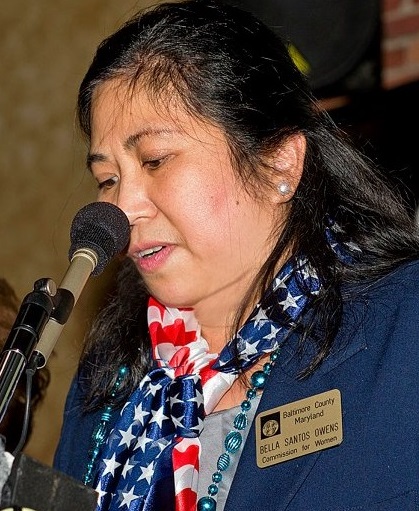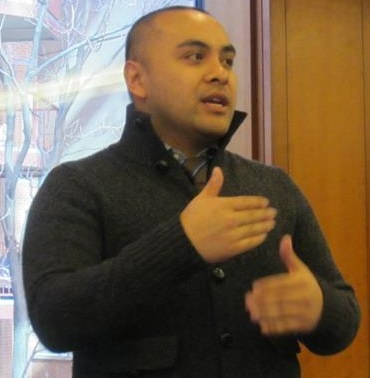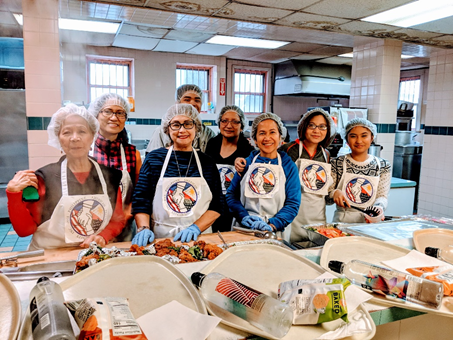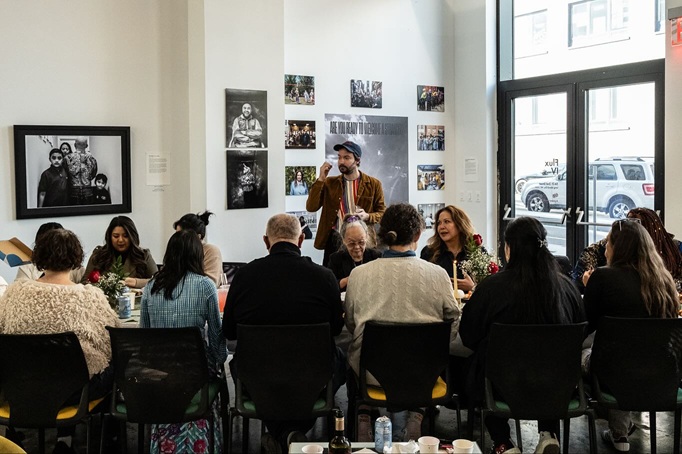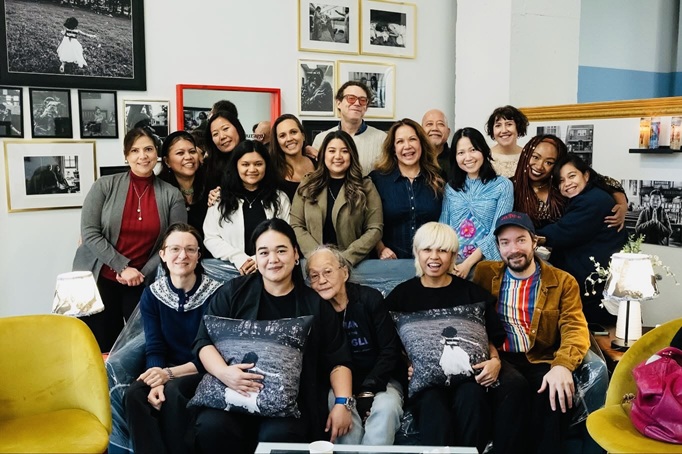Artist Xyza Cruz Bacani meditates on the meaning of ‘home’
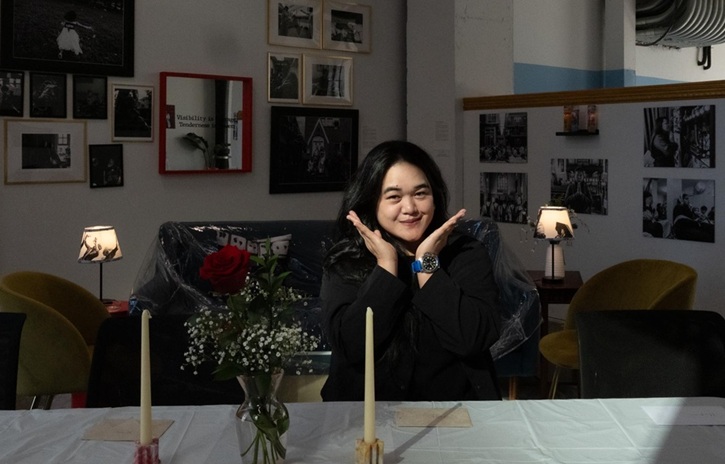
By Elaine Joy Edaya Degale
Are you ready to welcome a stranger?
Xyza Cruz Bacani’s “The Diaspora is Home” exhibition which ran from October 4 – November 2,2025, at Flux Factory IV culminated in a Kamayan: Storytelling Lunch that felt like an excavation of the soul. For immigrants like me, the feelings of displacement often feels like a performance of composure—an endless effort to appear whole while quietly piecing together the fragments of culture sifted by migration.
You don’t have to cross oceans to understand displacement; sometimes the distance is internal — between who we were and who the world asks us to be. In a city that embodies the restless pulse of a modern golden age, Xyza Cruz Bacani’s work dares us to pause. Through images and artifacts steeped in migration, memory, and care, “The Diaspora is Home” reimagines belonging—not as a destination, but as a reclamation.
“Some stories couldn’t be told without tears,” wrote Ninotchka Rosca, the award-winning Filipina novelist and human rights activist. “But that was in consonance with Xyza’s powerful photographs of strangers in a strange land working toward a society of empathy and compassion, of the commonality of pains and joys.”
From exile to arrival to homecoming
Through a Hegelian lens, the thesis of home converses with its antithesis, the diaspora. What Xyza does so brilliantly is synthesize these contradictions into a higher resolution—both literally and metaphorically. “I began to meditate on that word: home,” says Bacani. “Is it a physical space? A cherished object? A fleeting scent or memory that lingers long after we’ve left? Then it came to me: the diaspora itself is home.”
Bacani stitches together the fractured narratives of East and West into a living tapestry—one that dissolves the boundaries drawn to divide us, transforming them into patterns of connection. Her work challenges the old hierarchies of who gets to be seen, reminding us that the true story of civilization is not conquest, but convergence.
Visibility is courage, tenderness is power
In Xyza Cruz Bacani’s hands, the camera becomes both mirror and bridge — capturing not just where we come from, but where we continue to arrive. From a Freirean perspective, the exhibition becomes a site of conscientização—an awakening of our human capacity to recognize power, liberate through dialogue, and use our freedom to free others. In her own freedom, Xyza offered visibility and care: a Kamayan lunch shared with luminaries like Ninotchka Rosca, and small, sacred gestures that felt like rituals of homecoming.
“Supporting ‘The Diaspora is Home’ is a reaffirmation of what Filipino Americans for Racial Action has always stood for — that we are invincible, not invisible,” said Atty. Lara Gregory who founded an organization that addresses anti-Asian hate and empowers the Filipino American community. “Through the loving, tender, and generous act of hosting a meal to close the exhibit, we not only celebrate the talent and excellence of immigrants like Xyza Bacani, but also resist the cold-heartedness of an administration that deprives millions of Americans of food assistance by not funding SNAP (Supplemental Nutrition Assistance Program).”
Bacani was born in the Philippines, then spent over a decade in Hong Kong before finally settling and starting a family in Queens, New York. “For many immigrants, home transcends geography. Home is wherever the heart finds recognition.”
Your body is a vessel
During the Kamayan: Storytelling Lunch, arranged in traditional Filipino feast eaten with hands, Xyza’s humanist touch shone through: each of the 20 guests received a handwritten brown card bearing their name, serving as a seat placard. Bacani gave us two questions to contemplate: “When was the last time you felt like a stranger?” and “When was the last time you invited a stranger?”
Tucked inside my brown linen envelope was a Himalayan paper card bearing my name, its surface designed with a chowrie—a peacock-feather fan in a bejeweled ritual vessel used by Hindus, Buddhists, and Sikhs to honor royalty, deities, and spiritual leaders—and a gem-encrusted shehnai, an instrument typically played in spiritual ceremonies, processions, and weddings. These symbols were a bridge between faith, art, and arrival, mirroring Xyza’s photograph The Body Is a Vessel, where Chef Tab Hu stands with his back to the camera to reveal his tattoos as his family surrounds him, reminding us—as Xyza says— that “our bodies are living archives, carrying our memories, scars, laughter lines, and everything in between.”
In a world obsessed with maiming the body in service of vanity, Xyza’s work invites us to see our bodies as maps. Xyza’s lens is, in its own way, a living mandala: she gathers the fragments of diaspora and arranges them into balance, showing us that home is not the center we left behind, but the pattern we continue to create together. “Every person I met mirrored some part of myself,” says Bacani, “our longing, our resilience, our humor. In that reflection, I found home.”
Elaine Joy Edaya Degale is an award-winning Afro-Pinay writer who drifts between New York City and “SubSaharan Mindanao” as she finishes her novel ‘Sunflower: The Black Baby.’ Her writings on diaspora, identity, and class appear in Kinsman Quarterly, Positively Filipino, and the Philippine Daily Mirror, where she writes The Dreamweaver. Over the years, she has lectured in community colleges and holds an Ed.M. and M.A. from Teachers College, Columbia University, as well as an International Relations B.A. from Mount Holyoke College.




